HELPFUL RESOURCES:

Independent Living Checklist

• Your parent or loved one is still capable of managing their personal care

When a move might be appropriate:
Assisted Living
f you are considering memory care, you should consult with a physician or local memory care community to learn more about your options and what care type will be the most suitable to meet your loved ones needs.
The level of care at an assisted living facility will often scale based on the resident’s personal needs; as needs grow (or diminish), assisted living facilities can offer individualized care to accommodate.
Choosing to move your loved one to an assisted living community can be a difficult decision. You may want to consider assisted living if you are worried about your parent or loved one living at home alone or if they are unable to perform activities of daily living on their own.


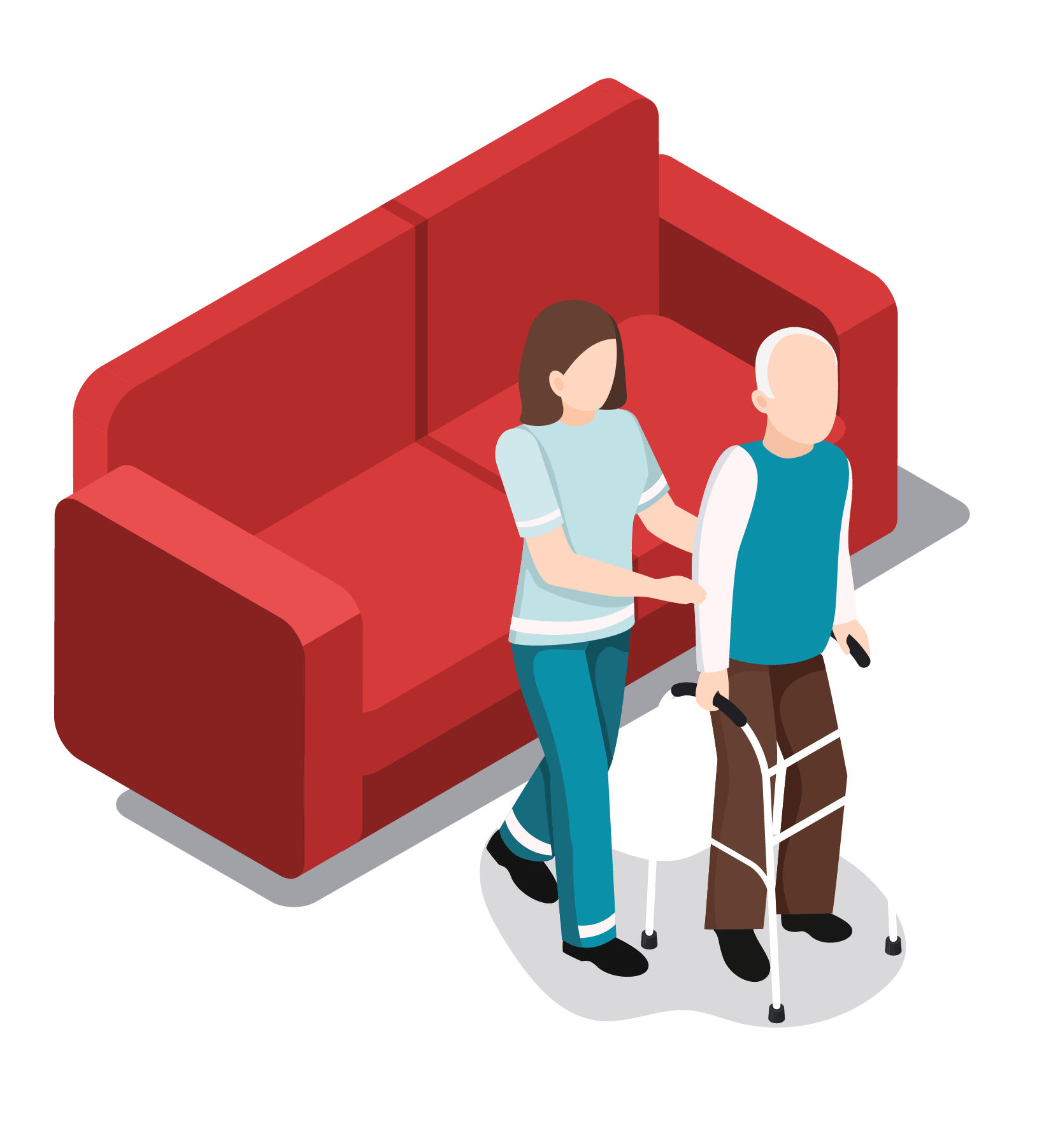
You can learn more by contacting us today.
www.cottageassistedliving.com
• They can take their medications independently

3. A LA CARTE:

• Sundowner's Syndrome (a period of increasingly agitated behavior that becomes more noticeable later in the day).
• They’re maintaining a healthy and active lifestyle
• You’ve noticed your loved one’s condition decline to the point that they’ve attempted to harm you, or have developed severe behavior issues.
YES
YES
NO
YES
YES
YES

Ideal for active and independent seniors who would like to downsize and enjoy a maintenance-free lifestyle.
Medication Management
Assistance with Activities of Daily Living
Alzheimer's and Dementia Care
24-Hour Staffing
Activity/Social Programming
Housekeeping & Laundry
Meals
Independent Living
Memory Care facilities are secure communities design specifically to care to those living with Alzheimer’s and other forms of dementia. Safety is a primary concern for families of those with Alzheimer’s.

HELPFUL RESOURCES:
Memory Care
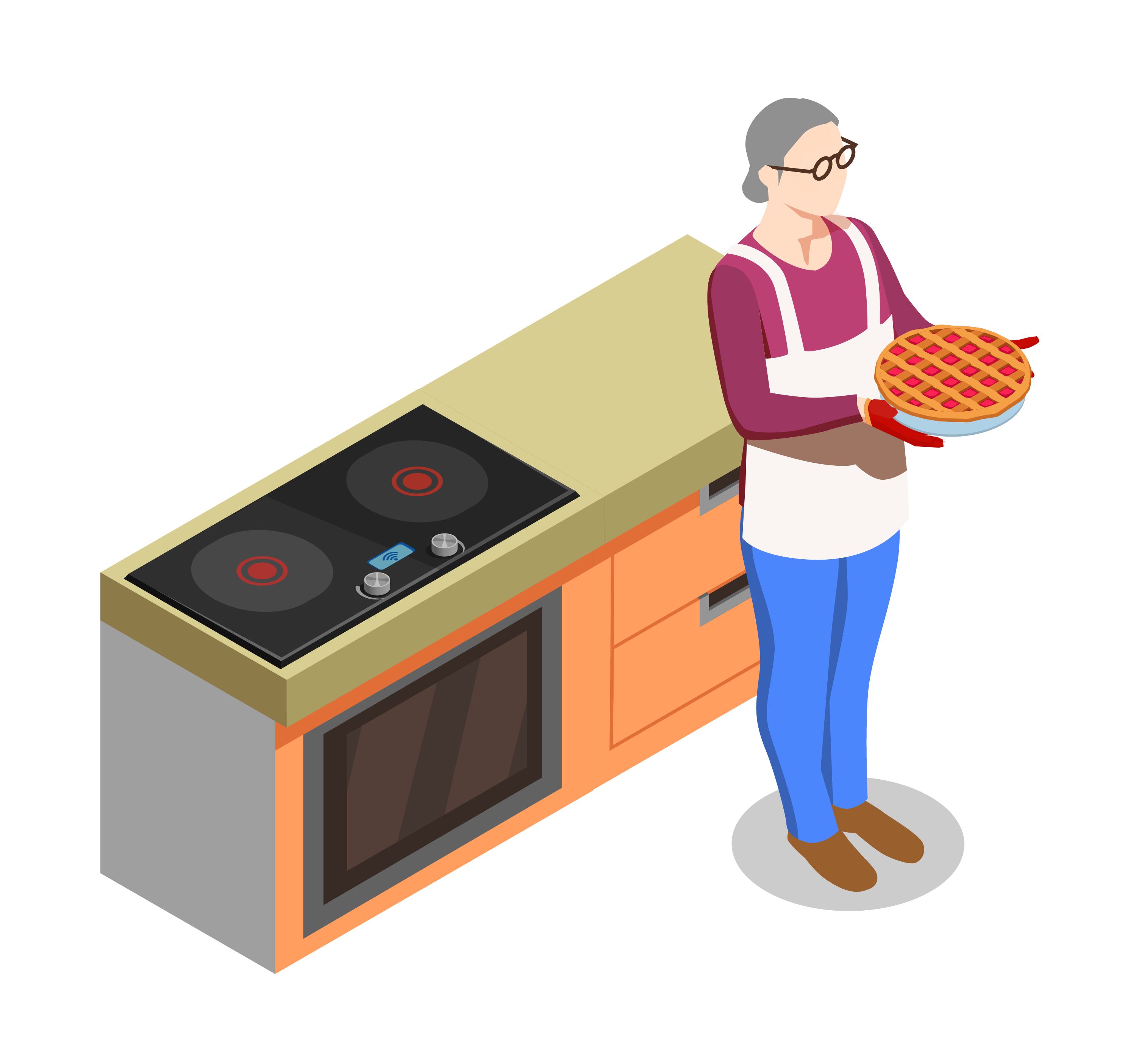
Communities that are specifically designed to care for individuals suffering from Alzheimer's and dementia.
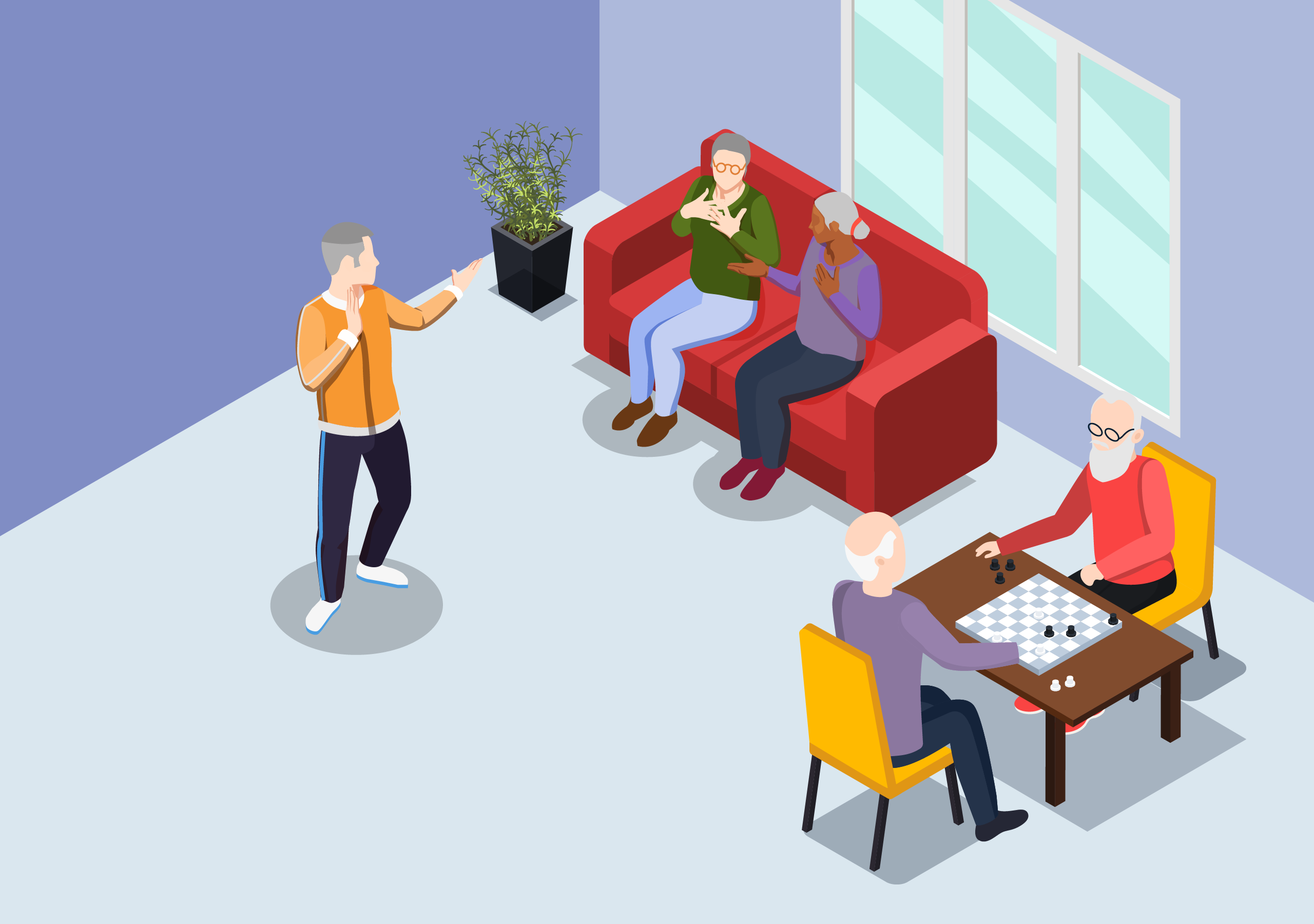
Assisted Living Checklist
Nursing Homes
Included Services:
YES
YES
YES
YES
YES
YES
• Wandering (when individuals with Alzheimer’s wander off repeatedly, they run the risk of tripping and injuring themselves).
Included Services:
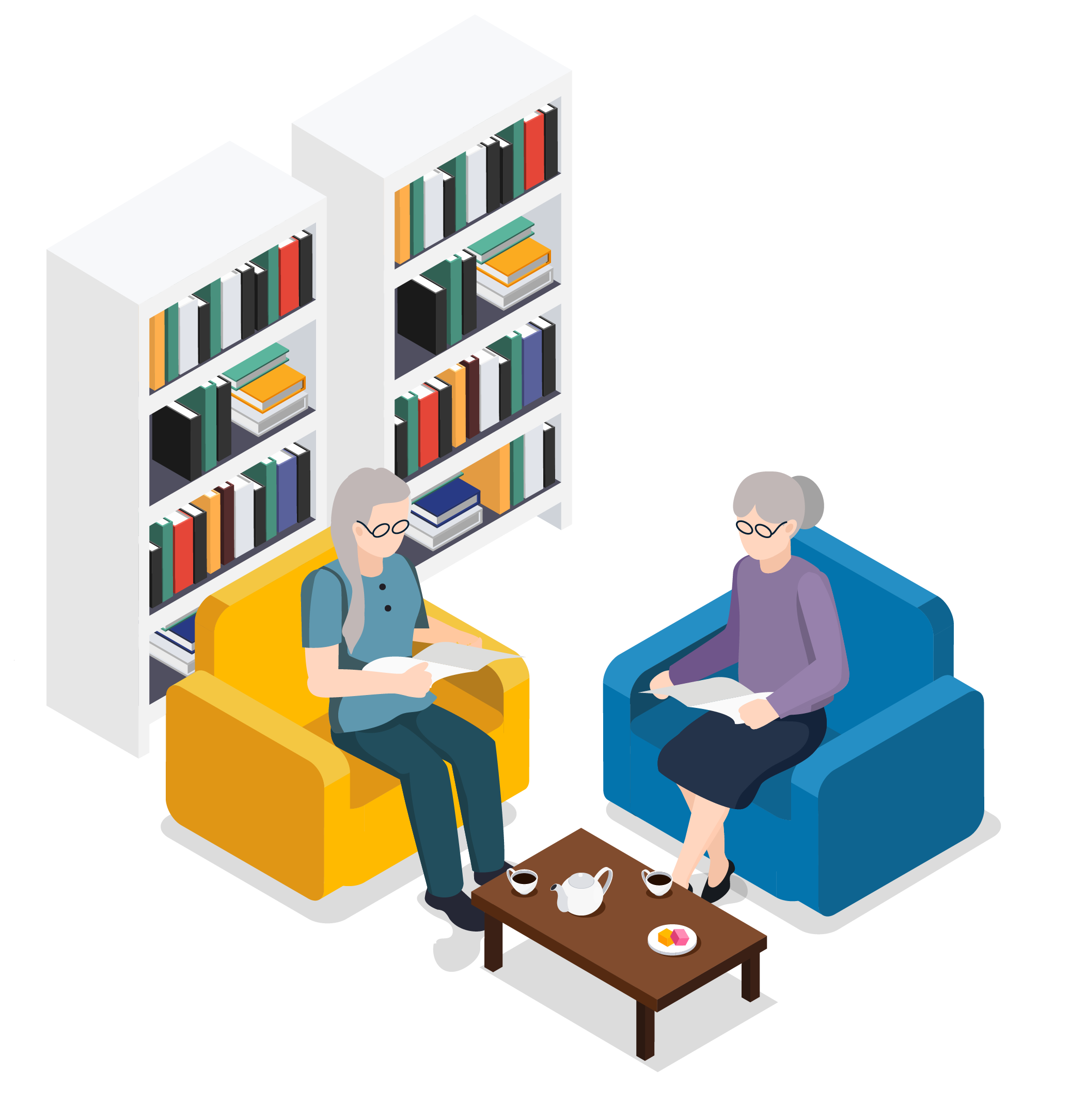
Multisensory Therapy Information
Included Services:
These communities are designed for individuals with complex care needs who require 24 hour hands-on-care.
YES
YES
YES
YES
VARIES
YES
When a move might be appropriate:
When a move might be appropriate:
Perfect for individuals who would benefit from assistance with medication management, dressing, bathing assistance, and other activities of daily living while maintaining their independence.
2. All-Inclusive:

In many instances, residents at assisted living facilities live in small, private studio apartments. Occasionally, a shared room is offered. Most assisted living communities encourage each resident to decorate their apartment with their own furnishings and personal mementos to make theses spaces feel more like home.
Moving a parent or loved one to a nursing home might make the most sense in situations where they have care needs that you can no longer handle on your own, or when the stress of providing care is taking its toll on you such as:
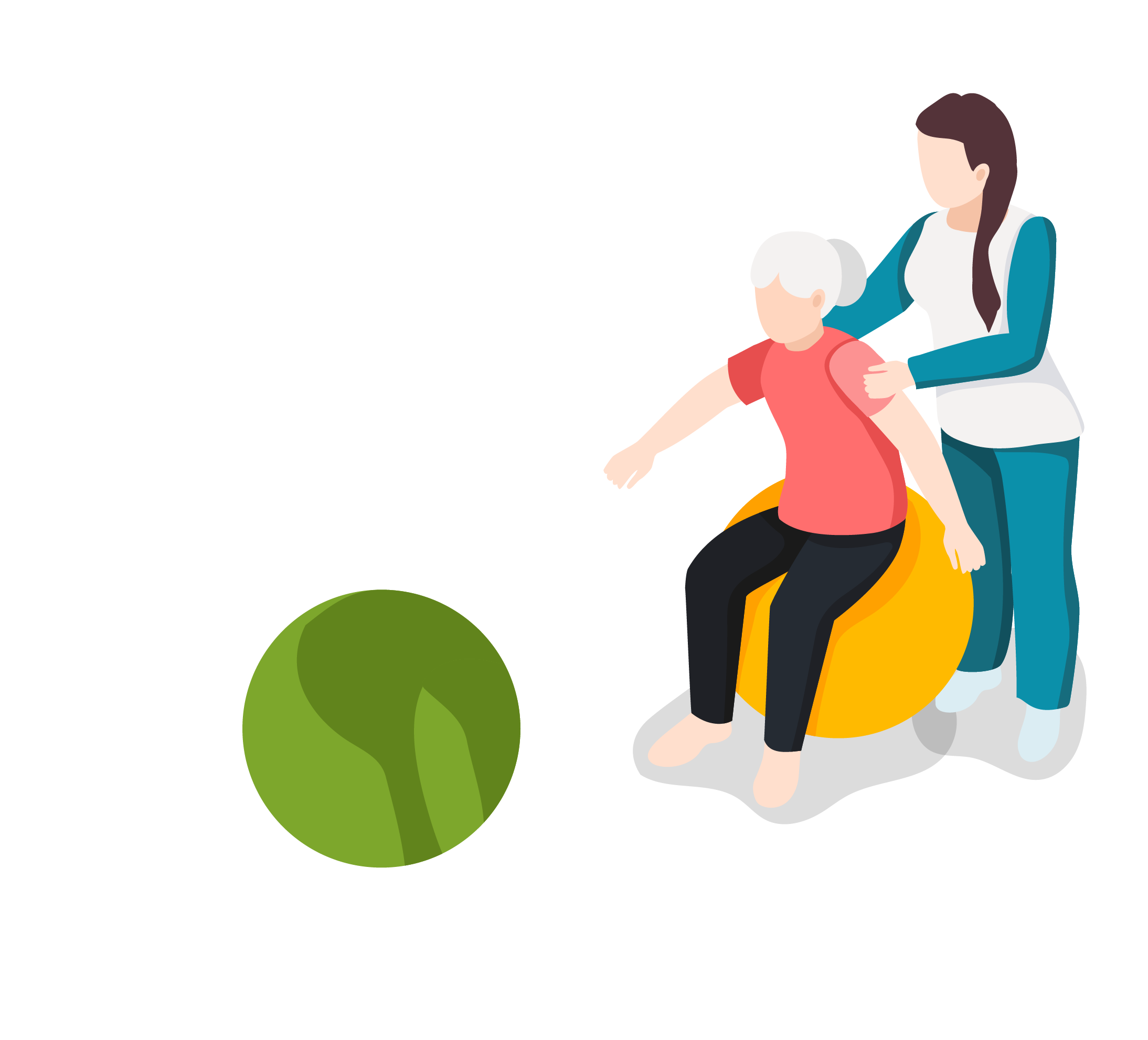
There are three types of pricing models that assisted living facilities typically offer:
Broadly speaking, the purpose of independent living communities is to make life easier for its residents without providing any hands on care. Most provide à la carte services like housekeeping, meal plans, and transportation, and are appropriate in situations where:
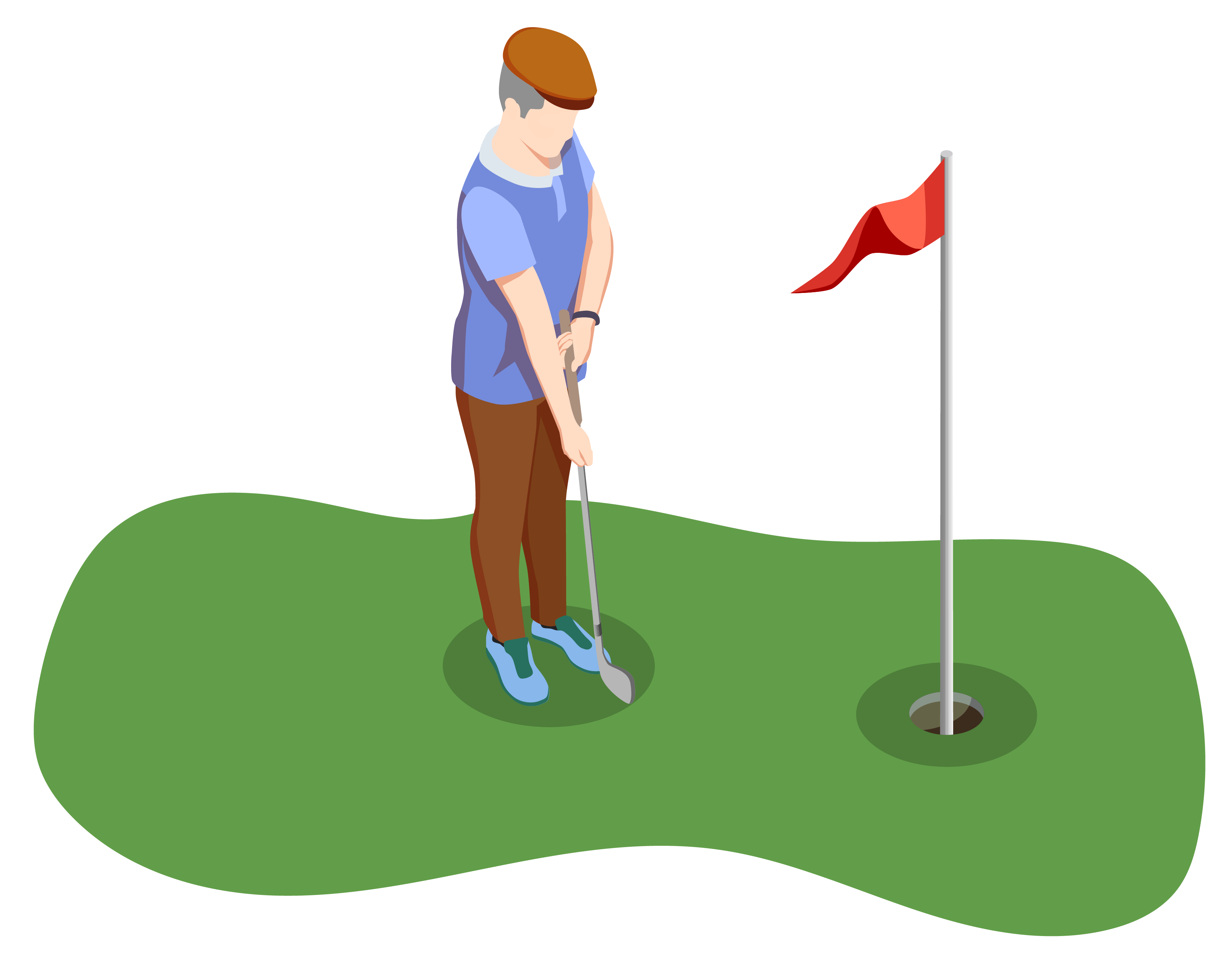
for loved ones with MEMORY LOSS:
We understand that providing care for a parent or loved one can be emotionally and physically draining, and hope that this guide will help you in your search for a solution that fits your needs. Additionally, if you think you are experiencing caregiver burnout, remember there are resources to help you:
• Your loved one has extremely limited mobility and needs more than two people to assist them in getting in and out of a chair or bed.
Independent Living
Varies
NO
NO
VARIES
YES
YES
Resident Profile:
You may want to consider memory care when you become concerned about your loved one’s safety due to exhibited behaviors associated with Alzheimer’s and dementia. These could include:
• Bathing
• Using the restroom
• Getting dressed
• Transportation
• Grooming
Finding the Perfect Fit:
For example, your parent might enter an assisted living facility requiring help with multiple tasks (bathing, using the restroom, cooking meals, etc.). As their condition improves, they might be able to handle more on their own and will have the freedom to do so.
• Your loved one needs regular appointments with specialists because of reoccurring issues with wounds or falls.
Medication Management
Assistance with Activities of Daily Living
Alzheimer's and Dementia Care
24-Hour Staffing
Activity/Social Programming
Housekeeping & Laundry
Meals
• Extreme forgetfulness (like repeatedly forgetting to turn off the stove or not taking medications).
Find and Compare Nursing Homes

One monthly fee that includes assistance with all activities of daily living and community amenities. This is a great option if your loved one needs assistance with several activities of daily living or if you would like a set price that will be the same each month.

When a move might be appropriate:
Benefits of Smaller Memory Care Facilities
Assisted Living
Such scenarios include:
Memory Care
Individual is independent, but no longer wants to maintain a home and all of the tasks associated with it.
FOR ACTIVE SENIORS:
here are 5 ways that you can beat caregiver burnout.


If an individual is showing signs of needing more help with activities of daily living and family members are concerned about safety and fall risks.
• They are also tired of the hassle associated with maintaining a household of their own

(256) 229-4578


Nursing Home
Memory care facilities offer a safe and secure environment for your loved one, designed to maximize safety while providing an environment that strives to improve its residents' overall condition. This can take the form of multi-sensory therapy (which arouses residents’ senses to help evoke positive emotions) and technologically-powered experiences like virtual reality (which can help residents engage in facsimiles of their favorite activities).
There are many similarities between assisted living facilities and memory care facilities. In fact, most memory care communities are a specialized section of an assisted living community. Some differences include: secured entrances and exits, highly trained caregivers and nurses to assist with care and medication management, and distinct activity programs and therapy options.
If you’d like to learn more about what care option might be best for you and your family, The Cottages are here to help.


• They are unable to cook, bathe, or get dressed on their own
• They have experienced repeated falls
• They are not eating well
• They need help managing their medications
• They are exhibiting signs of isolation
• Their home care expenses exceed those of moving to an assisted living facility
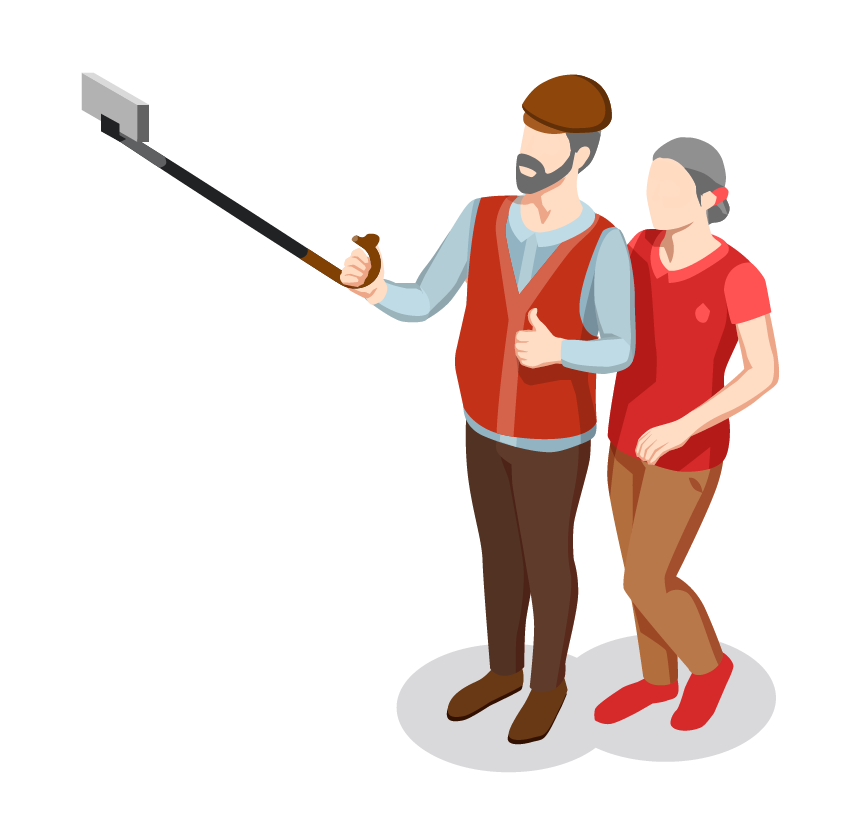

Resident Profile:
1. Levels-of-Care / Tiered:
Independent living communities are senior communities typically designed for residents who are 55+, and generally offer no care services. Depending on the independent living community, it might also provide additional perks like fitness classes, continuing education, and group activities.
TYPICALLY EXTRA COST
Residents of independent living communities are often healthy, but prefer the minimal hassle and reduced expenses they enjoy compared to owning their own home. Many feel that they are able to stay more active and have more fulfilling social lives at independent living communities.
Nursing homes provide care for individuals who require high degrees of supervision, but don’t need to be in a hospital, according to the National Institute of Health. Compared to assisted living facilities, nursing homes offer more in the way of specialized medical care, but their services do vary and may encompass 24-hour care, rehabilitation services, assistance with ADL, and meals in addition to nursing care.
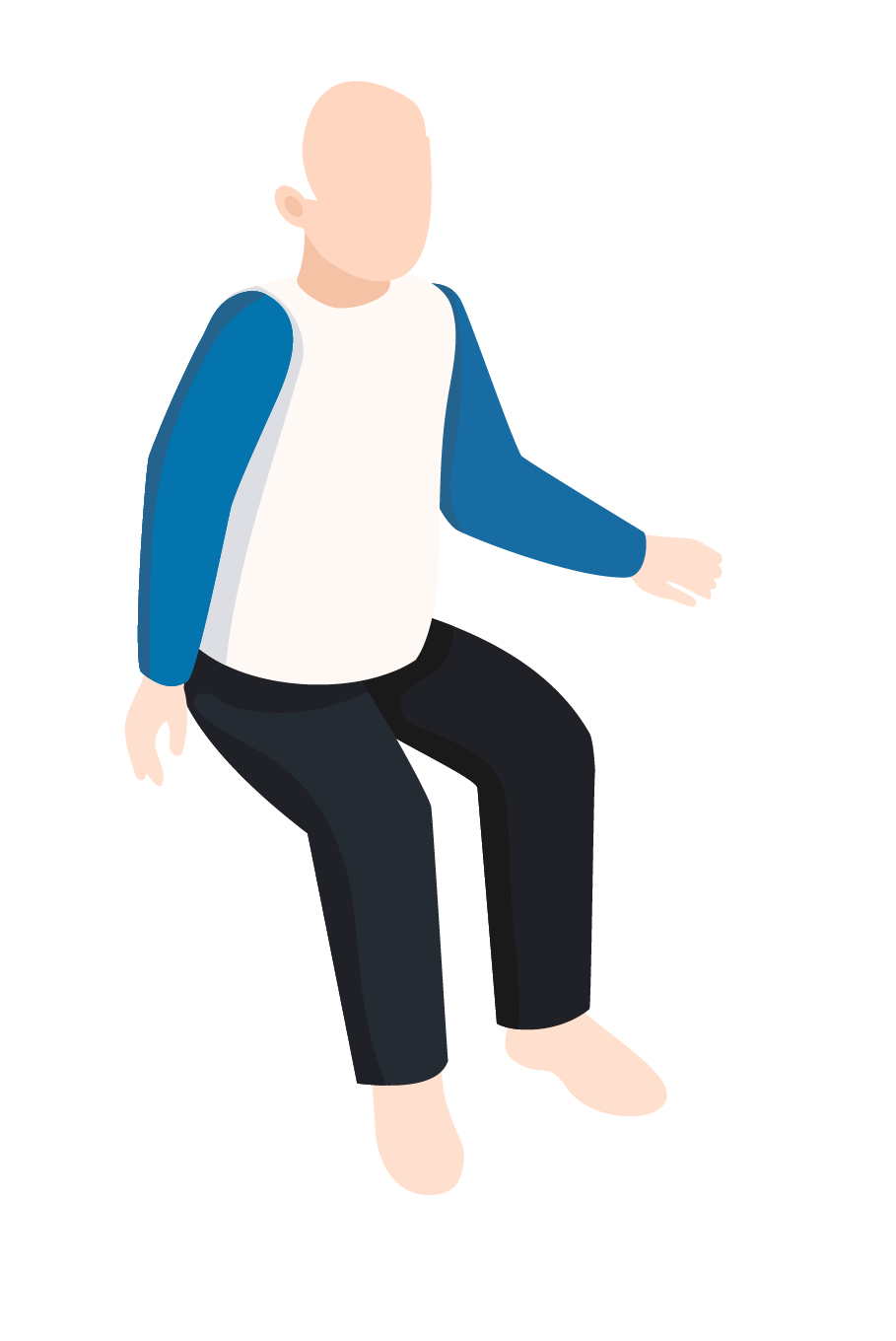
• Meal preparation
• Medication management
• Housekeeping
• Laundry

If you’ve had difficulty trying to navigate the different kinds of senior care that exists, this guide is for you. In it, we provide an overview of different senior living options, explaining to you what services they typically offer and at what point each level of care might be right for you or your loved one.
In addition to the base rate of the apartment, care is charged separately, often by the hour.
Assisted living is a type of senior living that provides support with activities of daily living (ADLs). In many respects, caregivers find that assisted living is a perfect balance of independence and the care that their loved one’s need. In assisted living facilities, residents range from completely independent to needing assistance with various activities of daily living (ADL), such as:
Click to view a brief summary of each senior living option. Scroll down for the full details.
Included Services:
• Your loved one has serious health complications that could impact their quality of life (need for respiratory care, severe heart failure, etc.), and transferring to an environment where they can receive greater supervision may improve their condition and overall safety.
It’s important for you to balance safety against other considerations, however, keep in mind that your parent has their own preferences as well. Perhaps they still want to cook on their own, or be able to go to the restroom without constant supervision?
A nursing home environment might not offer this freedom, so it’s paramount that you talk with your parent about what other options might be more suitable and what scenario would necessitate them making a move to a more comprehensive nursing care facility.
A base rate for the apartment is coupled with a care charge. The care charge is determined by an assessment. Residents only pay for the care that they are receiving and know exactly what they are paying for. This is a great option if your loved one needs minimal assistance.
Resident Profile:
Medication Management
Assistance with Activities of Daily Living
Alzheimer's and Dementia Care
24-Hour Staffing
Activity/Social Programming
Housekeeping & Laundry
Meals
When a Loved One Needs Support:
3 MEALS
A DAY
FOR SPECIALIZED HEALTH NEEDS:
Your Guide to Senior Living
Assisted Living Locator
3 MEALS
A DAY
You can find assisted living residences in your area through state/local agencies, online tools like the Eldercare Locator, or by asking friends and neighbors within your community.
If your loved one is no longer able to care for themselves due to a memory impairment, memory care may be a residential option for your family.
If there are safety concerns related to memory issues like wandering, extreme forgetfulness, and Sundowner's Syndrome.
If there is a need for care related to serious health complications such as respitory care or severe heart failure.
Medication Management
Assistance with Activities of Daily Living
Alzheimer's and Dementia Care
24-Hour Staffing
Activity/Social Programming
Housekeeping & Laundry
Meals
Resident Profile:
HELPFUL RESOURCES:
3 MEALS
A DAY
HELPFUL RESOURCES: